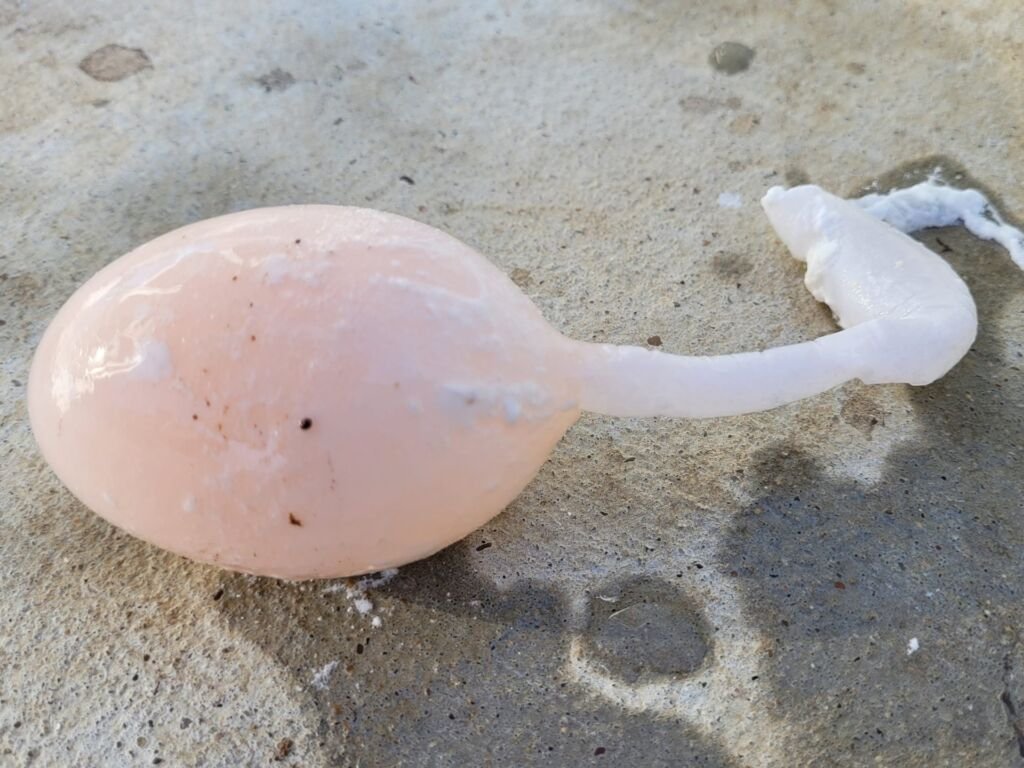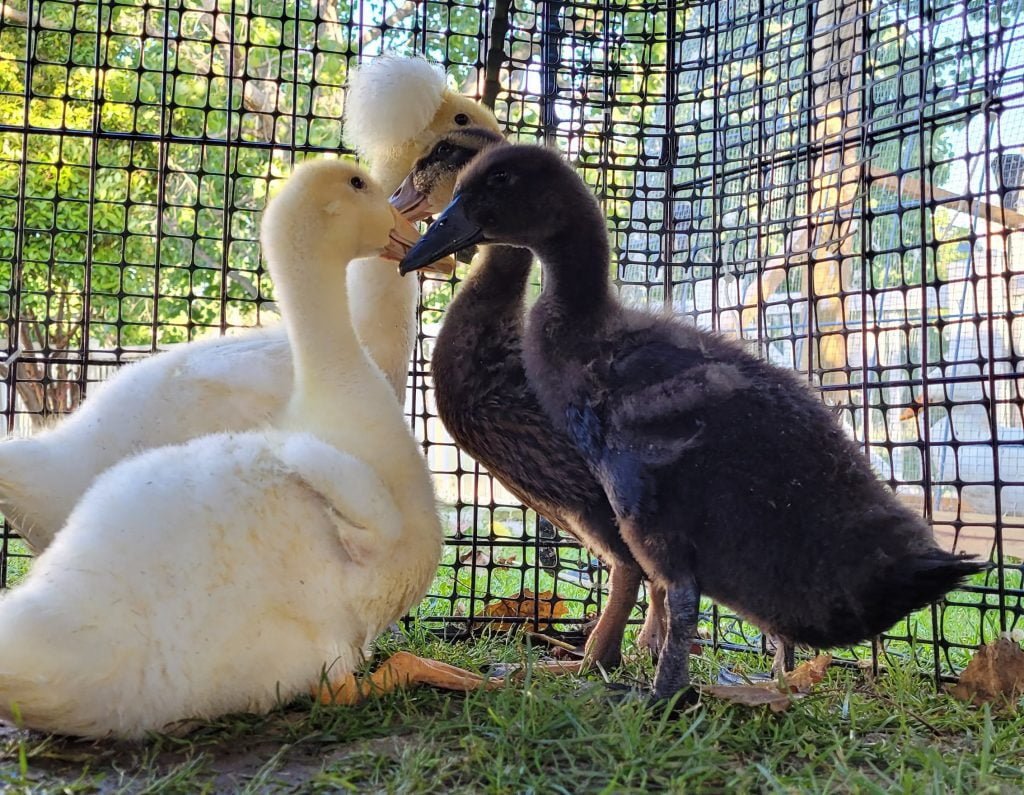Last updated on July 26th, 2024 at 02:21 pm
The nutritional needs of ducks encompass a spectrum of essential elements vital for their growth, health, and overall well-being. These needs include a balanced combination of macronutrients, such as proteins, fats, and carbohydrates, and micronutrients, including vitamins and minerals. Each of these components plays a crucial role in supporting various physiological functions, from promoting proper growth and development to maintaining immune function and reproductive health. Additionally, ducks’ dietary requirements vary depending on their age, breed, reproductive status, and environmental conditions. Therefore, understanding and meeting these nutritional needs are paramount to ensuring the health and vitality of ducks throughout their lifecycle.
As we delve deeper into the intricacies of duck nutrition, we’ll explore each aspect in detail, providing insights into the specific requirements of different life stages and purposes, from ducklings to breeders. Join us as we navigate the pathways of optimal nutrition, guiding our feathered friends toward a life of robust health and vitality.
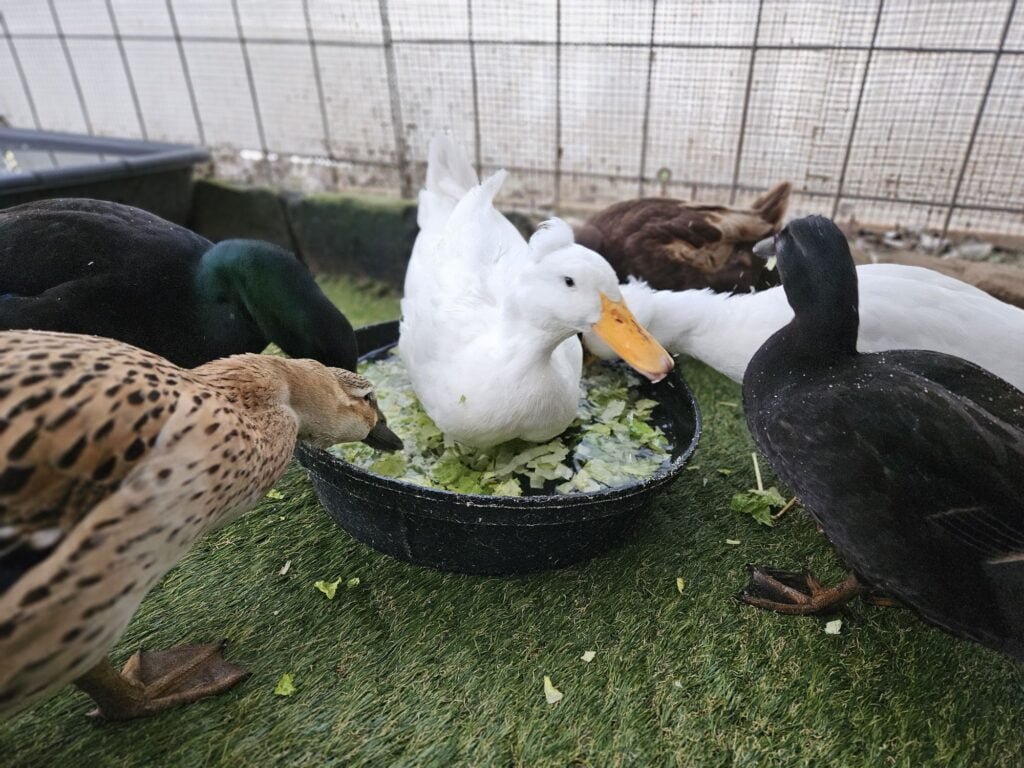
Disclaimer: I may earn a commission if you buy products or services through my affiliate links. This will not affect the price you pay. I only recommend products or services that I believe will be beneficial to my readers.
Nutritional Needs of Ducks at Different Age Stages:
Ducks progress through various developmental stages, each with specific nutritional demands critical for their well-being. Understanding these stages is fundamental to providing appropriate nourishment for optimal growth and health. From the initial phase of ducklinghood, characterized by rapid growth and development, to the maturity of adulthood, where maintenance and reproductive functions take precedence, ducks’ dietary requirements evolve significantly. This understanding guides caregivers in selecting suitable feeds and supplements to meet the changing needs of their feathered companions at each life stage. Through informed nutritional management, we ensure that ducks receive the essential nutrients essential for their growth, vitality, and longevity.
Nutritional Needs of Ducklings:
Ducklings undergo rapid growth and development during the early stages of life, necessitating specialized nutrition to support their health and vitality. This critical period is divided into two distinct phases:
Starter Phase:
- High Protein Content: Ducklings require a diet rich in protein (around 18-20%) to support muscle development and feather growth during this initial phase of rapid growth.
- Energy-Dense Feeds: Starter feeds are formulated to provide ample energy to fuel ducklings’ energetic activities, promoting healthy growth and vitality.
- Essential Amino Acids: Essential amino acids such as lysine and methionine are crucial for building strong bodies and vibrant plumage, ensuring optimal development.
- Niacin Supplementation: Niacin, a B vitamin, is essential for proper growth and development in ducklings. Supplementing niacin in the diet helps prevent leg problems and promotes overall health.
Grower Phase:
- Moderate Protein Content: As ducklings transition into the grower phase, the protein content in their diet may be slightly reduced to around 16-18%, balancing their nutritional needs and preventing excessive weight gain.
- Sustained Energy Supply: Grower feeds continue to provide a balanced combination of nutrients to support steady growth and development during this phase.
- Niacin Supplementation: Niacin remains important during the grower phase to support proper growth and development, as well as to prevent leg problems and promote overall health.
Understanding the nutritional requirements during each stage is essential for promoting optimal growth and ensuring the well-being of young ducks. Let’s explore these specific needs in more detail to provide our feathered friends with the best possible start in life.
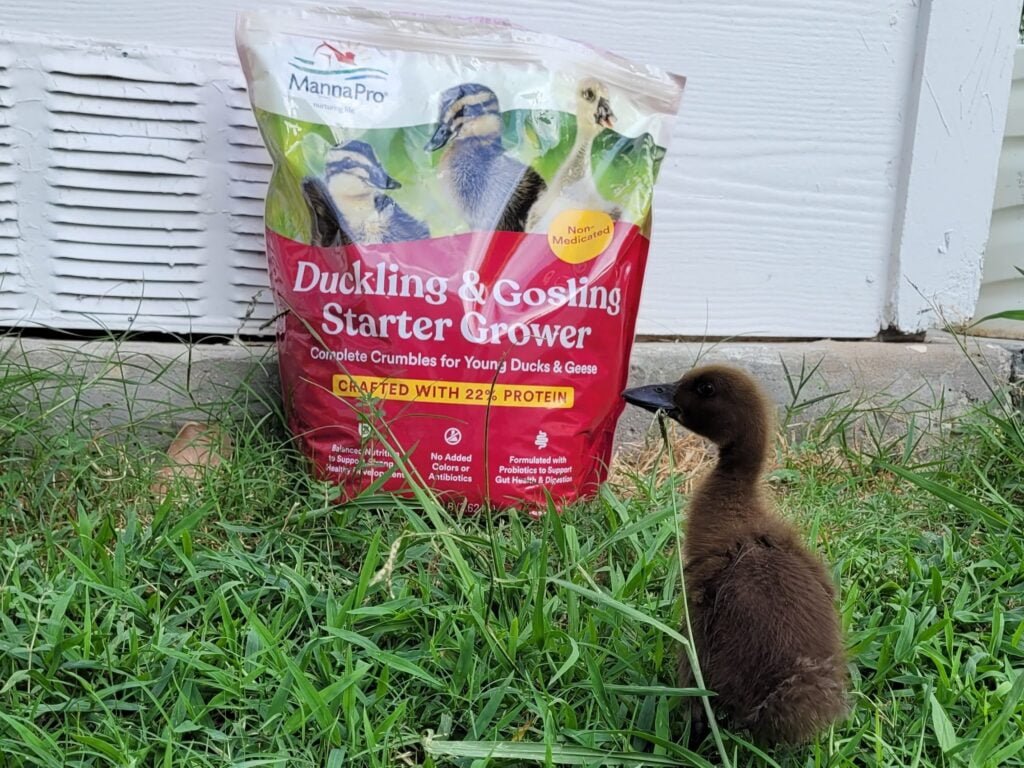
Nutritional Needs of Adult Ducks:
As ducks mature into adulthood, their nutritional requirements shift to support their specific roles and maintain their health and productivity. This stage can be further categorized into four distinct groups: maintenance ducks, breeder ducks, egg layers, and ducks raised for meat. Understanding the dietary needs of adult ducks in each category is essential for ensuring their well-being and optimizing their performance.
Maintenance Ducks:
Maintenance ducks, including our beloved pet ducks, are living in environments where egg production is not a priority and have dietary needs focused on sustaining overall health and vitality.
- Balanced Nutrition: A well-balanced diet with moderate protein content (around 14-16%) supports the maintenance of muscle mass and overall health without promoting excessive weight gain.
- Essential Nutrients: A diet rich in essential vitamins, minerals, and amino acids ensures that maintenance ducks receive the necessary nutrients to support their daily activities and longevity.
- Calcium Supplementation: While not as critical as in egg-laying breeds, access to calcium sources such as oyster shells or crushed eggshells remains beneficial for maintaining bone health and preventing deficiencies.
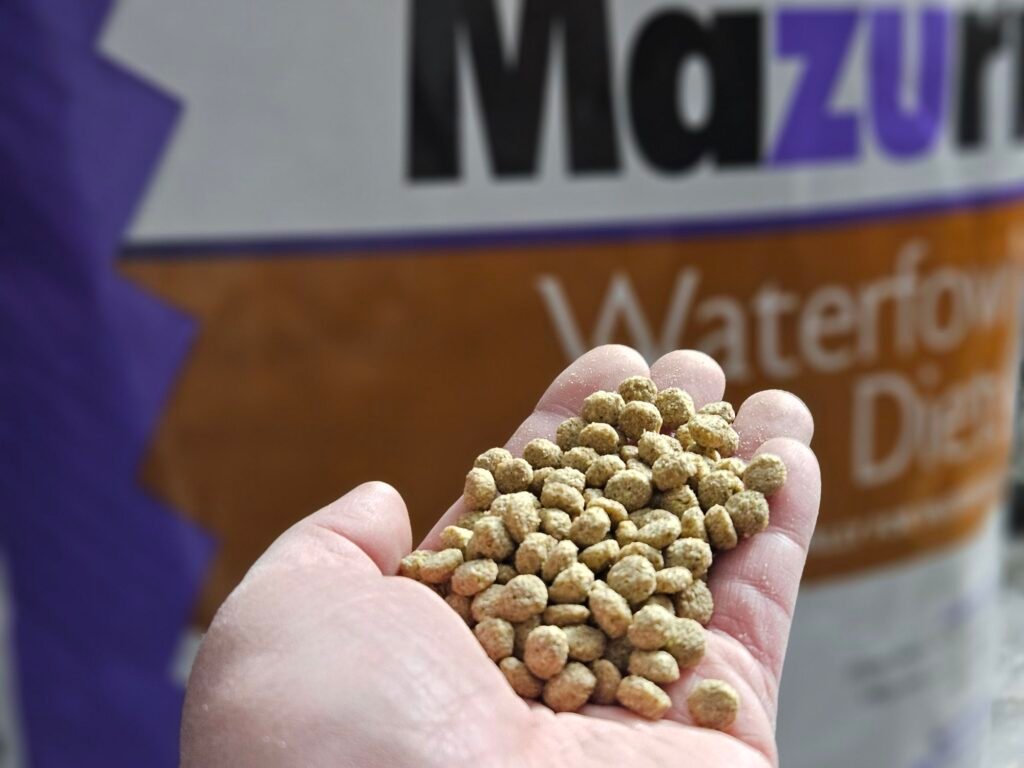
Breeder Ducks:
Breeder ducks, tasked with the important role of egg production and reproduction, have heightened nutritional requirements to support fertility, egg quality, and overall reproductive success.
- High-Quality Protein: Breeder diets typically contain higher protein levels (around 16-18%) to support egg production, fertility, and proper muscle development.
- Omega-3 Fatty Acids: Supplementing breeder diets with omega-3 fatty acids, such as flaxseed or fish oil, can improve egg quality and enhance reproductive performance.
- Increased Calcium Intake: Breeder ducks require elevated levels of calcium to support eggshell formation and prevent deficiencies that could lead to egg-related problems or reproductive issues.
Egg Layers:
Ducks explicitly raised for egg production have nutritional requirements tailored to support consistent egg laying and high-quality egg production.
- Optimized Protein Levels: Egg layers require diets with moderate to high protein content (around 16-18%) to support egg production and maintain muscle mass.
- Calcium Supplementation: An adequate supply of calcium is essential for eggshell formation, ensuring the production of strong and durable eggs.
- Vitamin D: Vitamin D aids in calcium absorption and is crucial for maintaining bone health and eggshell quality in laying ducks.
Ducks Raised for Meat:
Ducks destined for the dinner table have dietary needs focused on promoting rapid growth and efficient muscle development.
- High-Protein Diet: Diets for meat-producing ducks contain higher protein levels (around 18-20%) to support rapid muscle growth and development.
- Balanced Nutrition: Providing a well-balanced diet rich in essential vitamins and minerals ensures optimal growth and overall health in ducks raised for meat.
- Energy-Dense Feeds: Energy-dense feeds help meet the increased energy requirements of meat-producing ducks, supporting their growth and development.
Nutritional requirements of ducks summarized:
| Nutrient Category | Requirement for Ducklings | Requirement for Adult Ducks (Maintenance) | Requirement for Adult Ducks (Breeder) | Requirement for Egg Layers | Requirement for Ducks Raised for Meat |
|---|---|---|---|---|---|
| Protein | 18-20% | 14-16% | 16-18% | 16-18% | 18-20% |
| Energy | High | Moderate | Moderate | Moderate | High |
| Essential Amino Acids | Lysine, Methionine | Balanced | Balanced | Balanced | Balanced |
| Calcium | Moderate | Moderate | Increased | Increased | Moderate |
| Phosphorus | Moderate | Moderate | Moderate | Moderate | Moderate |
| Vitamin A | Essential for vision and immune function | Essential for vision and immune function | Essential for vision and immune function | Essential for vision | Essential for vision |
| Vitamin D | Essential for calcium absorption | Essential for calcium absorption | Essential for calcium absorption | Essential for calcium absorption | Essential for calcium absorption |
| Vitamin E | Antioxidant protection | Antioxidant protection | Antioxidant protection | Antioxidant protection | Antioxidant protection |
| Niacin | Essential for growth and development | Essential for overall health | Essential for reproduction | Essential for egg production | Essential for muscle growth |
| Omega-3 Fatty Acids | Essential for egg quality |
By tailoring diets to meet the specific needs of maintenance ducks, breeders, egg layers, and ducks raised for meat, caregivers can ensure that their adult feathered friends thrive in their respective roles and lead healthy, fulfilling lives. Let’s delve deeper into the nutritional requirements of each category to provide our ducks with the optimal diet for their stage of life and purpose.
Exploring Essential Nutrient Categories for Ducks
To ensure the health and vitality of our feathered friends, it’s crucial to understand the essential nutrient categories that form the foundation of their diets. These nutrients play vital roles in supporting various physiological functions, from promoting growth and reproduction to maintaining overall well-being. By delving into each nutrient category, we gain valuable insights into the dietary requirements of ducks and can better tailor their diets to meet their specific needs. Join us as we explore the importance of protein and energy, amino acids, minerals, water-soluble vitamins, and oil-soluble vitamins in the nutrition of ducks, uncovering the key roles they play in sustaining our feathered companions’ health and vitality.
Protein and Energy:
Essential for growth, muscle development, and energy production. Choose feeds with appropriate protein levels and energy sources like grains and seeds.
Energy Sources:
Ducks require energy for various physiological processes, including growth, maintenance, and reproduction. Carbohydrates, fats, and proteins are the primary sources of energy in duck diets. Carbohydrates provide readily available energy, while fats offer a concentrated source of energy and essential fatty acids. Balancing energy sources in duck diets is essential to meet their energy requirements and support optimal growth and performance.
Understanding Protein in Duck Diets:
- Muscle Development: Protein is essential for building and repairing muscle tissue in ducks, supporting their overall strength and mobility.
- Feather Health: Proteins are the building blocks of feathers, contributing to their structure, strength, and luster. A protein-rich diet promotes healthy plumage in ducks.
- Immune Function: Proteins play a vital role in supporting the immune system, helping ducks more effectively fend off illnesses and infections.
Sources of Protein for Ducks:
- High-Quality Feeds: Commercial duck feeds often contain balanced levels of protein derived from sources like soybean meal, fish meal, and poultry by-products.
- Insects and Grubs: Ducks naturally forage for insects and grubs, which are rich sources of protein. Consider supplementing their diet with live insects or dried mealworms and grubs for added protein.
- Legumes and Seeds: Legumes such as lentils and seeds like sunflower seeds provide plant-based sources of protein that can be included in their diet.
Understanding Fat in Duck Diets:
- Energy Source: Fat is a crucial energy source for ducks, helping them stay active and healthy.
- Insulation: Ducks need fat to maintain proper insulation, especially during colder seasons. It keeps them warm and comfortable.
- Nutritional Balance: While fat is essential, it’s important to maintain a balanced diet. Aim for around 2-4% fat content in their overall diet.
Sources of Fat for Ducks:
- Natural Foods: Ducks can acquire fat from various natural sources such as seeds, nuts, grains, and insects found in their environment.
- Commercial Feeds: Many commercially available duck feeds are specially formulated to provide the right balance of nutrients, including fat, to meet their dietary needs.
Understanding Carbohydrates in Duck Diets:
- Energy Source: Carbohydrates are a primary source of energy for ducks, fueling their daily activities and bodily functions.
- Digestive Health: Certain carbohydrates, such as fiber, are essential for maintaining healthy digestion in ducks. They aid in proper nutrient absorption and waste elimination.
- Nutritional Balance: While carbohydrates are crucial, ensuring a balanced diet is important. Aim for a moderate intake of carbohydrates to complement other essential nutrients.
Sources of Carbohydrates for Ducks:
- Grains: Grains like corn, wheat, barley, and oats are common sources of carbohydrates in duck diets. These grains provide energy and essential nutrients.
- Vegetables: Vegetables such as leafy greens, carrots, and peas also contribute carbohydrates to a duck’s diet while offering additional vitamins and minerals.
- Fruits: Certain fruits, such as berries, apples, and watermelon, can be offered as occasional treats, providing natural sugars and carbohydrates.
Understanding Fiber in Duck Diets:
- Digestive Health: Fiber plays a crucial role in maintaining optimal digestive health for ducks. It aids in regulating bowel movements, preventing constipation, and promoting overall gut function.
- Nutrient Absorption: By promoting healthy digestion, fiber enhances the absorption of essential nutrients from other foods in their diet, ensuring they receive maximum nutritional benefits.
- Weight Management: Fiber-rich foods can help ducks feel fuller for longer periods, supporting weight management and preventing obesity.
Sources of Fiber for Ducks:
- Leafy Greens: Vegetables like kale, spinach, and lettuce are excellent sources of fiber for ducks. These greens not only provide fiber but also offer essential vitamins and minerals.
- Root Vegetables: Carrots, sweet potatoes, and turnips are rich in fiber and can be added to their diet to promote digestive health.
- Grains and Seeds: Certain grains and seeds, such as barley, oats, and flaxseeds, contain soluble fiber that aids in digestion and overall gut health.
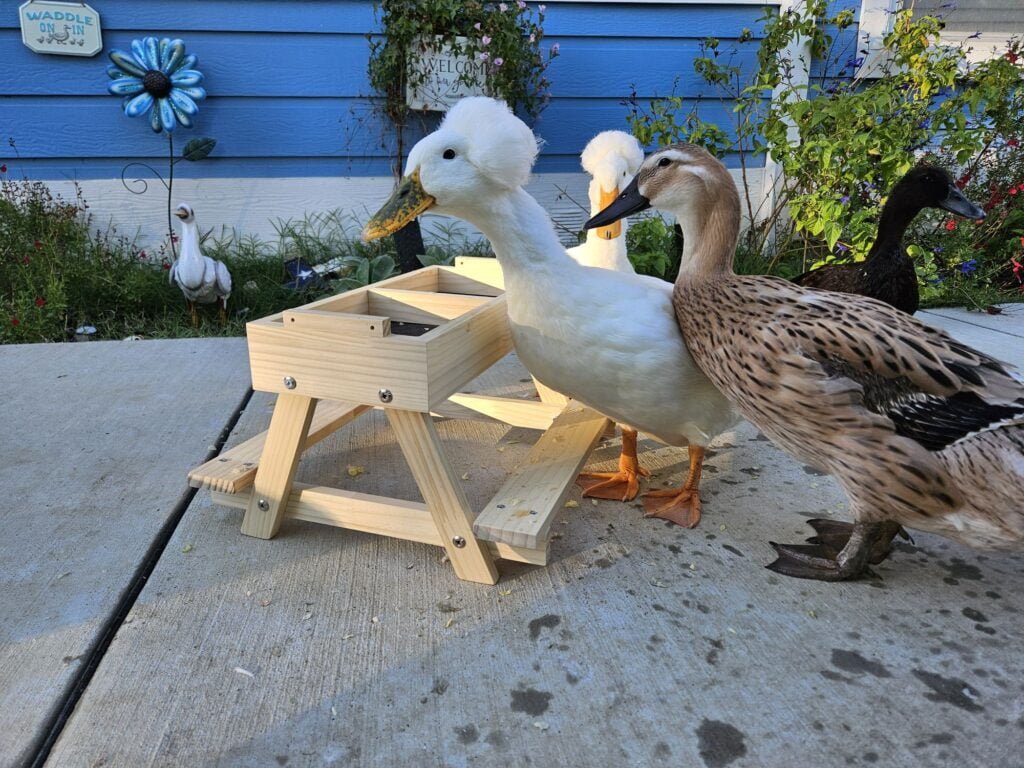
Protein Quality:
In addition to providing essential amino acids, the quality of protein sources is crucial for duck nutrition. High-quality protein sources contain balanced amino acid profiles and are highly digestible, ensuring optimal protein utilization and growth performance in ducks. Common protein sources for ducks include soybean meal, fish meal, meat meal, and poultry by-product meal (yeah, I know that sounds goss).
Metabolizable Energy:
Metabolizable energy (ME) measures the energy available to ducks after accounting for energy losses during digestion and metabolism. ME values are commonly used to formulate duck diets and ensure they meet the duck’s energy requirements. Different feed ingredients have varying ME values, which must be considered when formulating balanced diets for ducks.
Energy-to-Protein Ratio:
The energy-to-protein ratio in duck diets is crucial for optimizing growth performance and feed efficiency. Balancing the energy-to-protein ratio ensures that ducks receive sufficient energy to support growth and development without excess protein, which can be costly and inefficient. Properly formulated diets with the correct energy-to-protein ratio are essential for maximizing the performance and profitability of duck production systems.
Here’s a table outlining the energy needs of different age stages of ducks:
| Age Stage | Metabolizable Energy Requirement (kcal/kg) |
|---|---|
| Ducklings (0-2 weeks) | 2,800 – 3,000 |
| Ducklings (3-6 weeks) | 2,500 – 2,700 |
| Grower Ducks | 2,400 – 2,600 |
| Adult Ducks | 2,200 – 2,400 |
| Breeder Ducks | 2,600 – 2,800 |
| Laying Ducks | 2,800 – 3,000 |
How Do You Know How Much to Feed?
To convert the energy needs listed in the table to amounts of commercial duck food, you’ll need to know the energy content of the specific commercial duck feed you’re using. Commercial duck feeds typically provide information on their energy content in terms of kilocalories per kilogram (kcal/kg) or kilocalories per pound (kcal/lb).
Once you have the energy content of the commercial duck feed, you can use the following formula to calculate the amount of feed needed:

For example, let’s say you have a commercial duck feed with an energy content of 3,000 kcal/kg. Using the energy requirement for ducklings aged 0-2 weeks from the table (2,800 – 3,000 kcal/kg), you can calculate the amount of feed needed as follows:
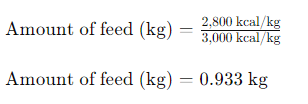
So, ducklings aged 0-2 weeks would need approximately 0.933 kg of commercial duck feed per kilogram of body weight to meet their energy requirements.
You can repeat this calculation for each age stage and adjust the amount of feed based on the energy content of the specific commercial duck feed you’re using. It’s essential to monitor duck growth and adjust feed amounts as needed to ensure they receive adequate energy for optimal performance and development.
The Science of Duck Nutrition: Exploring Amino Acids
Amino acids play a crucial role in the growth, development, and overall health of ducks. Essential amino acids, such as methionine, lysine, threonine, tryptophan, and arginine, are particularly vital as ducks cannot synthesize them in sufficient quantities and must obtain them from their diet.
Methionine and cysteine are essential for feather development and overall growth. Lysine is necessary for protein synthesis and muscle development, while threonine supports immune function and intestinal health. Tryptophan contributes to optimal growth and is a precursor for serotonin, which regulates mood and behavior. Arginine is involved in protein metabolism and plays a role in immune function.

Methionine (Met):
Methionine (Met) is a crucial amino acid for the health and performance of ducks, serving several essential functions:
- Protein Synthesis: Methionine is a key building block for protein synthesis in ducks. It is involved in the formation of peptide bonds, which link amino acids together to form proteins. Protein synthesis is essential for the growth, repair, and maintenance of various tissues and organs in ducks, including muscles, feathers, and internal organs.
- Feather Development: Methionine plays a critical role in ducks’ feather development. Feathers are composed primarily of keratin, a protein rich in sulfur-containing amino acids like methionine. Adequate methionine levels in the diet are necessary to support feather growth and structural integrity, ensuring that ducks develop healthy plumage.
- Antioxidant Properties: Methionine is a precursor to other sulfur-containing compounds, such as cysteine and taurine, which have antioxidant properties. These compounds help protect duck cells from oxidative damage caused by free radicals and reactive oxygen species. By scavenging these harmful molecules, methionine helps reduce the risk of oxidative stress-related diseases and supports overall health.
- Niacin Synthesis: Methionine is a precursor for ducks’ niacin (vitamin B3) synthesis. Niacin is essential for various physiological processes, including energy metabolism, DNA repair, and nervous system function. Adequate methionine intake ensures sufficient niacin production in ducks, supporting their overall health and vitality.
- Growth and Performance: Methionine is considered a limiting amino acid in poultry nutrition, meaning that its availability often determines the rate of growth and overall performance of ducks. Optimal levels of methionine in the diet are necessary to support rapid growth, efficient feed conversion, and optimal body composition in ducks, particularly during rapid growth and development periods.
- Egg Production: In addition to its role in growth and performance, methionine is also essential for egg production in laying ducks. Adequate methionine levels in the diet are necessary to support the formation of egg proteins and ensure optimal egg quality and quantity.
Lysine (Lys):
Lysine (Lys) is an essential amino acid that plays a crucial role in the health and performance of ducks, offering several key benefits:
- Protein Synthesis: Lysine is one of the building blocks of proteins and is essential for protein synthesis in ducks. It is particularly important for the production of muscle proteins, which are vital for growth, development, and overall body composition in ducks. Adequate lysine intake ensures efficient protein synthesis, supporting optimal growth and muscle development in ducks.
- Immune Function: Lysine is involved in the synthesis of antibodies and immune cells, contributing to the duck’s immune response against pathogens and infections. It plays a crucial role in maintaining the integrity of the duck’s immune system, helping to defend against diseases and promote overall health and well-being.
- Collagen Formation: Lysine is necessary for the synthesis of collagen, a structural protein found in connective tissues, skin, and feathers. Collagen provides strength, elasticity, and structure to these tissues, ensuring proper growth and development in ducks. Adequate lysine levels in the diet support the formation of healthy skin, feathers, and connective tissues, contributing to overall structural integrity and health.
- Reproductive Performance: Lysine is essential for reproductive performance in ducks, particularly in breeding and laying ducks. It plays a role in the development of reproductive organs, the production of reproductive hormones, and the formation of egg proteins. Optimal lysine levels in the diet support fertility, egg production, and hatchability in breeding ducks, contributing to successful reproduction and offspring production.
- Stress Reduction: Lysine has been shown to have stress-reducing properties in animals, helping to mitigate the negative effects of stress on growth, performance, and immune function. It is involved in the synthesis of serotonin, a neurotransmitter that regulates mood and stress response in ducks. Adequate lysine intake may help reduce stress levels in ducks, promoting overall health and well-being.
Threonine (Thr):
Threonine (Thr) is an essential amino acid that plays a vital role in the health and performance of ducks, offering several important functions:
- Protein Synthesis: Threonine is a key component of protein synthesis, serving as a building block for the production of various proteins in ducks. It is particularly important for the synthesis of muscle proteins, which are essential for growth, development, and overall body composition in ducks. Adequate threonine intake ensures efficient protein synthesis, supporting optimal growth and muscle development in ducks.
- Intestinal Health: Threonine plays a crucial role in maintaining the health and integrity of the intestinal tract in ducks. It is a major component of mucin, a glycoprotein that lines the intestinal epithelium and forms a protective barrier against pathogens and toxins. Threonine also supports the growth and proliferation of intestinal cells, promoting gut health and function.
- Immune Function: Threonine is involved in the synthesis of antibodies and immune cells, contributing to the duck’s immune response against pathogens and infections. It plays a critical role in maintaining the integrity of the duck’s immune system, helping to defend against diseases and promote overall health and well-being.
- Metabolism: Threonine is a precursor to several important metabolic compounds, including glycine and serine. These compounds play essential roles in various metabolic processes, including energy production, neurotransmitter synthesis, and detoxification. Adequate threonine levels in the diet support proper metabolism and overall physiological function in ducks.
- Feather Development: Threonine is necessary for the synthesis of keratin, a protein that forms the structure of feathers in ducks. Adequate threonine intake supports healthy feather development, ensuring proper feather quality, structure, and growth in ducks.
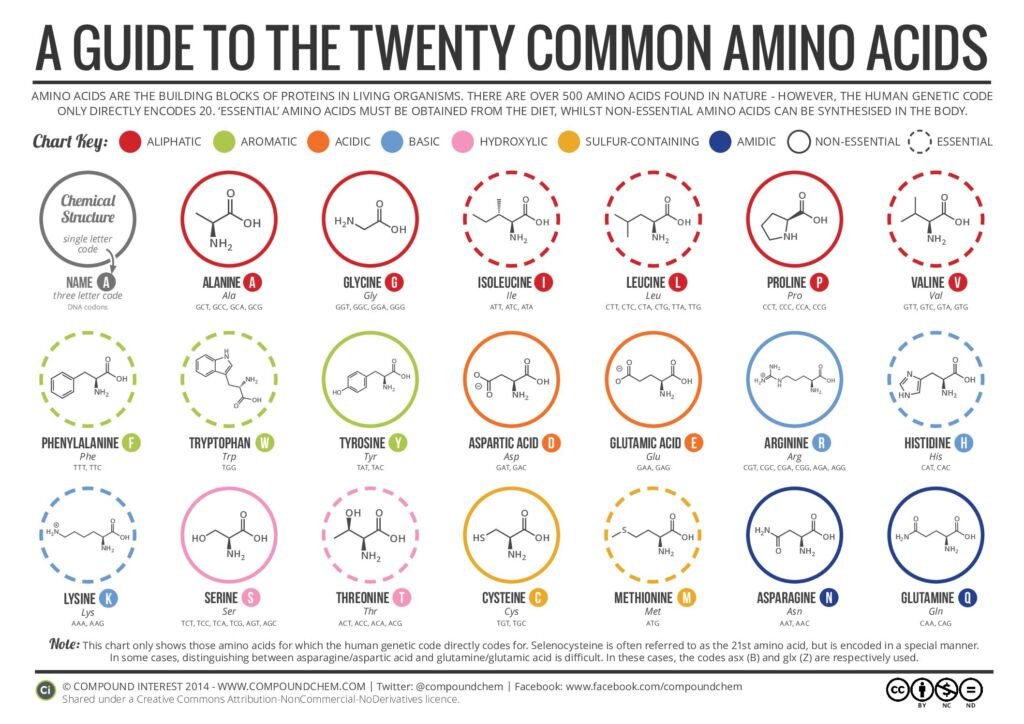
Arginine (Arg):
Arginine (Arg) is a semi-essential amino acid with significant importance in the health and performance of ducks, offering various essential functions:
- Nitric Oxide Production: Arginine serves as a precursor for the synthesis of nitric oxide (NO), a signaling molecule involved in numerous physiological processes, including vasodilation, immune response, and neurotransmission. Nitric oxide helps regulate blood flow, promote cardiovascular health, and enhance immune function in ducks.
- Protein Synthesis: Arginine plays a crucial role in protein synthesis, serving as a building block for the production of various proteins in ducks. It is particularly important for the synthesis of muscle proteins, which are essential for growth, development, and overall body composition in ducks. Adequate arginine intake ensures efficient protein synthesis, supporting optimal growth and muscle development in ducks.
- Urea Cycle: Arginine is a key component of the urea cycle, a metabolic pathway that converts toxic ammonia into urea for excretion. By facilitating the removal of ammonia from the body, arginine helps maintain nitrogen balance and prevent ammonia toxicity in ducks. This is particularly important for ducks fed high-protein diets or undergoing periods of rapid growth.
- Immune Function: Arginine is involved in various aspects of immune function, including the proliferation and activation of immune cells, such as T lymphocytes and macrophages. It also plays a role in the production of nitric oxide, which has antimicrobial and immune-modulating effects. Adequate arginine intake supports a robust immune response, helping ducks defend against pathogens and infections.
- Reproductive Performance: Arginine plays a critical role in reproductive performance in ducks, particularly in breeding and laying ducks. It is involved in the synthesis of reproductive hormones, such as growth hormone and insulin-like growth factor 1 (IGF-1), which regulate reproductive function and fertility. Optimal arginine levels in the diet support fertility, egg production, and hatchability in breeding ducks, contributing to successful reproduction and offspring production.
Cysteine (Cys):
Cysteine (Cys) holds significant importance for the health and well-being of ducks:
- Structural Protein Formation: Cysteine plays a crucial role in the formation of structural proteins, contributing to the development and maintenance of feathers, skin, and connective tissues in ducks. These proteins are vital for supporting the structural integrity of various organs and tissues, ensuring optimal mobility and overall health.
- Antioxidant Defense: As a precursor to glutathione, cysteine contributes to ducks’ antioxidant defense system. Glutathione helps protect duck cells from oxidative damage caused by free radicals, environmental toxins, and metabolic byproducts. By neutralizing these harmful compounds, cysteine helps maintain cellular health and function, supporting ducks’ overall well-being.
- Detoxification: Cysteine aids in the detoxification process by facilitating the removal of harmful substances from the body. Through the formation of glutathione, cysteine helps detoxify heavy metals, pollutants, and other toxins that ducks may encounter in their environment or through their diet. This detoxification process is essential for maintaining optimal health and reducing the risk of oxidative stress-related diseases.
- Immune Function: Cysteine supports ducks’ immune systems by contributing to the synthesis of antibodies and immune cells. By providing the necessary building blocks for immune proteins, cysteine helps strengthen ducks’ immune responses to pathogens, infections, and diseases. This is particularly important for ducks raised in commercial settings, where they may be exposed to various pathogens and stressors.
- Overall Health and Performance: Adequate cysteine intake is essential for supporting the overall health and performance of ducks. By promoting structural integrity, antioxidant defense, detoxification, and immune function, cysteine helps ensure that ducks grow and thrive optimally. Including cysteine-rich sources in duck diets can help meet their nutritional needs and support their health and well-being throughout their lifecycle.
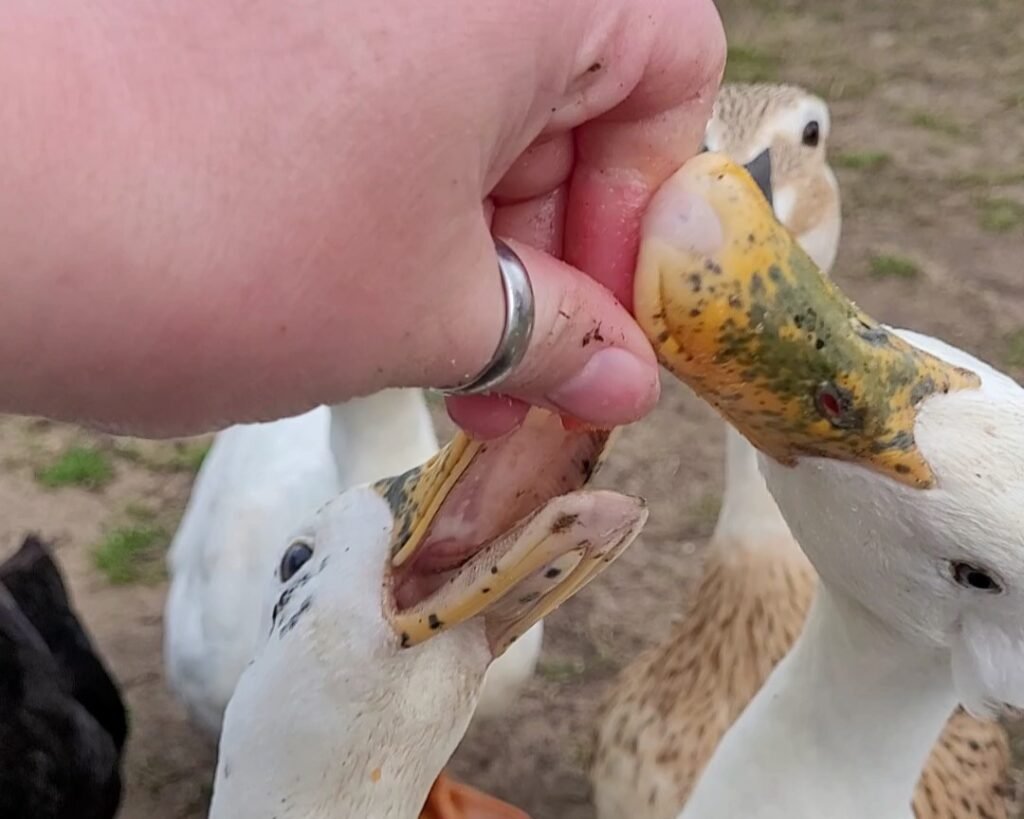
Tryptophan (Trp):
Tryptophan is an essential amino acid that holds significant importance in the health and performance of ducks, offering several crucial functions:
- Protein Synthesis: Tryptophan is a building block for protein synthesis, contributing to the production of various proteins in ducks. It is particularly important for the synthesis of muscle proteins, which are essential for growth, development, and overall body composition in ducks. Adequate tryptophan intake supports efficient protein synthesis, promoting optimal growth and muscle development.
- Serotonin and Melatonin Synthesis: Tryptophan serves as a precursor for the synthesis of serotonin and melatonin, two important neurotransmitters and hormones. Serotonin regulates mood, appetite, and behavior, while melatonin regulates the sleep-wake cycle and circadian rhythms. Adequate tryptophan levels in the diet support the production of serotonin and melatonin, promoting overall well-being and physiological balance in ducks.
- Stress Reduction: Tryptophan has been shown to have stress-reducing properties in animals, helping to mitigate the negative effects of stress on growth, performance, and immune function. Serotonin, produced from tryptophan, plays a role in regulating mood and stress response in ducks. Adequate tryptophan intake may help reduce stress levels in ducks, promoting overall health and well-being.
- Feed Intake Regulation: Tryptophan can influence feed intake in ducks, with research suggesting that ducks may adjust their feed consumption based on the amount of tryptophan available in their diet. This regulatory mechanism helps ensure that ducks receive sufficient nutrients for their growth and metabolic needs, optimizing feed efficiency and overall performance.
- Economic Efficiency: Tryptophan supplementation in the diet has been shown to increase the economic efficiency of raising poultry. By promoting optimal growth, feed utilization, and stress resilience, tryptophan contributes to improved production outcomes and profitability in duck farming operations.
Balancing the levels of these essential amino acids in duck diets is critical to ensure proper growth, feathering, immune function, and overall well-being. Research indicates that meeting the specific amino acid requirements of ducks at different life stages and production purposes is essential for maximizing performance and minimizing feed costs. Therefore, formulating diets with adequate levels of essential amino acids is essential for optimizing duck health and productivity.
| Amino Acid | Ducklings | Grower | Layer | Breeder | Maintenance |
|---|---|---|---|---|---|
| Methionine | 0.45% | 0.38% | 0.38% | 0.38% | 0.38% |
| Methionine + Cysteine | 0.72% | 0.60% | 0.60% | 0.60% | 0.60% |
| Lysine | 1.05% | 0.85% | 0.85% | 0.85% | 0.85% |
| Threonine | 0.75% | 0.65% | 0.65% | 0.65% | 0.65% |
| Tryptophan | 0.20% | 0.17% | 0.17% | 0.17% | 0.17% |
| Arginine | 1.05% | 0.85% | 0.85% | 0.85% | 0.85% |
Critical Minerals: Fulfilling Duck’s Dietary Balance
Minerals are essential nutrients for ducks, playing critical roles in various physiological processes and overall health. Here are some key minerals and their functions in ducks:
Calcium (Ca):
Calcium (Ca) is a crucial mineral for ducks, offering several vital functions:
- Skeletal Health: Calcium is primarily known for its role in bone formation and skeletal development in ducks. It provides the structural framework for bones and plays a vital role in maintaining bone strength, integrity, and density. Adequate calcium intake supports proper bone growth and development, prevents skeletal deformities, and ensures overall skeletal health in ducks.
- Eggshell Formation: Calcium is essential for the formation of eggshells in laying ducks. During egg production, calcium is mobilized from the duck’s bones and deposited into the eggshell gland, forming the eggshell’s calcium carbonate matrix. Adequate calcium availability is necessary to produce eggs with strong, intact shells, reducing the risk of shell defects and egg breakage.
- Muscle Contraction and Nerve Function: Calcium plays a critical role in muscle contraction and nerve function in ducks. It acts as a signaling molecule, triggering muscle contractions and transmitting nerve impulses throughout the body. Proper calcium levels are essential for maintaining normal muscle function, including heart muscle function, and supporting proper nerve transmission and coordination in ducks.
- Blood Clotting: Calcium is involved in the blood clotting process, where it helps convert prothrombin to thrombin, a key enzyme in the coagulation cascade. Adequate calcium levels are necessary for proper blood clot formation, which is essential for preventing excessive bleeding and promoting wound healing in ducks.
- Enzyme Activation: Calcium serves as a cofactor for various enzymes involved in metabolic processes, including energy metabolism, protein synthesis, and hormone regulation. It plays a crucial role in activating enzymes that catalyze biochemical reactions essential for cellular function, growth, and overall metabolic health in ducks.
Overall, calcium is a critical mineral for ducks, supporting skeletal health, eggshell formation, muscle function, nerve transmission, blood clotting, and metabolic processes. Ensuring adequate calcium intake through proper diet formulation is essential for promoting the health, productivity, and overall well-being of ducks throughout their lifecycle.
Oyster Shells
Calcium plays a vital role in developing and maintaining strong bones and eggshells in ducks. As a valued Ducks of Providence community member, we’re excited to offer you an exclusive discount on Scratch and Peck Oyster Shells. Simply use code providence15 to save 15% on your first order with Scratch and Peck (the discount works for their other products as well).
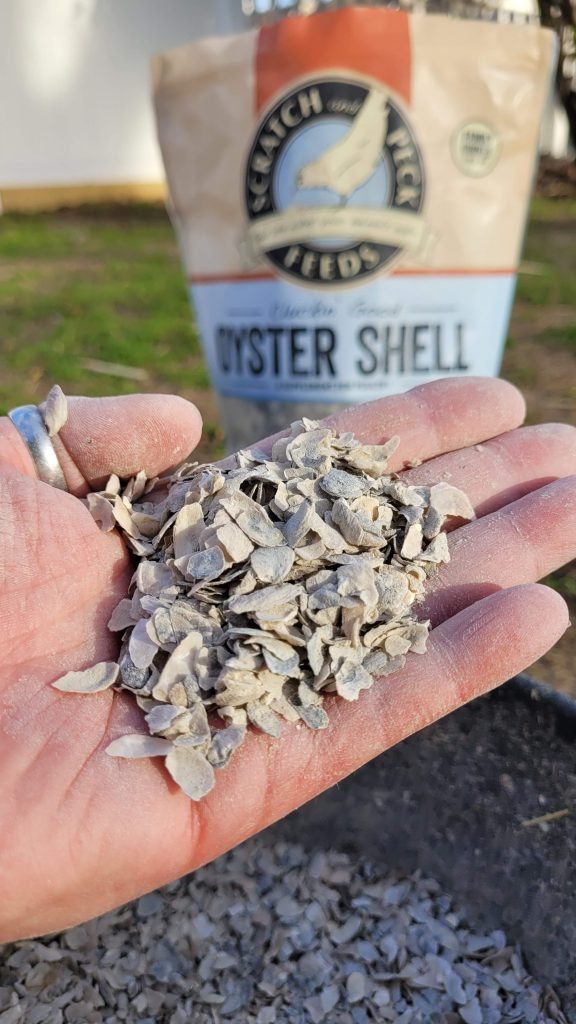
Phosphorus (P):
Phosphorus (P) is an essential mineral that plays several crucial roles in the health and well-being of ducks and is an often overlooked nutritional need of ducks:
- Bone and Skeletal Health: Phosphorus and calcium are major components of bone mineralization. Together, phosphorus and calcium form hydroxyapatite crystals, which provide strength and rigidity to ducks’ bones and teeth. Adequate phosphorus intake is essential for proper bone formation, growth, and maintenance, helping to prevent skeletal deformities and disorders such as rickets and osteoporosis.
- Energy Metabolism: Phosphorus is involved in various metabolic processes, including energy metabolism, where it plays a key role in the synthesis and utilization of adenosine triphosphate (ATP), the primary energy currency of cells. Phosphorus-containing compounds, such as ATP and phosphocreatine, are essential for cellular energy production, storage, and transfer, supporting vital physiological functions and activities in ducks, such as growth, movement, and thermoregulation.
- Cellular Signaling and Communication: Phosphorus is a component of phospholipids, which are major constituents of cell membranes. Phospholipids play critical roles in cellular signaling and communication, facilitating the transmission of signals between cells and coordinating various cellular processes, such as cell growth, differentiation, and apoptosis (programmed cell death). Phosphorus also participates in intracellular signaling pathways, regulating gene expression, enzyme activity, and cellular responses to external stimuli in ducks.
- DNA and RNA Synthesis: Phosphorus is an essential component of nucleic acids, including deoxyribonucleic acid (DNA) and ribonucleic acid (RNA), which are the building blocks of genetic material and essential for the transmission of genetic information and the synthesis of proteins in cells. Phosphorus-containing compounds, such as phosphate groups, are critical for the structure and function of nucleic acids, providing the backbone and stability required for DNA and RNA molecules to encode and transfer genetic information accurately during cellular processes such as replication, transcription, and translation.
- Buffering and Acid-Base Balance: Phosphorus plays a role in buffering body fluids and maintaining acid-base balance in ducks. Phosphates act as weak acids or bases, helping to regulate the pH of body fluids, including blood and extracellular fluid, within a narrow range to support normal physiological functions and prevent acidosis or alkalosis. Phosphorus also contributes to the formation of buffers, such as phosphate buffers, which help stabilize pH and maintain homeostasis in ducks, especially during metabolic processes that produce acidic or basic byproducts.
In summary, phosphorus is essential for bone and skeletal health, energy metabolism, cellular signaling, DNA and RNA synthesis, and buffering and acid-base balance in ducks. Ensuring adequate phosphorus intake through proper diet formulation is crucial for promoting the growth, development, and overall health of ducks throughout their lifecycle.
Sodium (Na) and Chloride (Cl):
Sodium (Na) and chloride (Cl) are essential electrolytes that play critical roles in the health and physiology of ducks:
- Fluid Balance: Sodium and chloride are key electrolytes involved in maintaining proper fluid balance and osmotic pressure in ducks’ body fluids. They help regulate the movement of water across cell membranes and throughout the body, ensuring hydration and proper cellular function. Sodium and chloride ions work together to maintain osmotic equilibrium between intracellular and extracellular compartments, which is essential for normal physiological processes and cellular integrity.
- Nerve Function: Sodium and chloride ions are essential for generating and propagating nerve impulses in ducks. Sodium ions play a central role in depolarizing cell membranes and initiating action potentials, which are electrical signals that travel along nerve cells to transmit information between neurons and muscle cells. Chloride ions maintain resting membrane potential and modulate neuronal excitability, supporting proper nerve transmission and coordination.
- Muscle Contraction: Sodium and chloride ions are involved in regulating muscle contraction and relaxation in ducks. Sodium ions play a crucial role in initiating muscle contraction by triggering the release of calcium ions from the sarcoplasmic reticulum within muscle cells. Chloride ions help maintain muscle cell excitability and responsiveness to nerve signals, contributing to the proper coordination and control of muscle contractions during movement and activity.
- Acid-Base Balance: Sodium and chloride ions play a role in maintaining acid-base balance and pH homeostasis in ducks. Chloride ions, in the form of chloride ions, form hydrochloric acid (HCl) in the stomach, which is essential for digestion and nutrient absorption. Sodium ions help regulate extracellular pH by influencing the excretion and reabsorption of hydrogen ions (H+) and bicarbonate ions (HCO3-) in the kidneys, helping to maintain systemic pH within a narrow range compatible with normal physiological function.
- Hydration and Thirst Regulation: Sodium ions play a crucial role in regulating thirst and fluid intake in ducks. Changes in extracellular sodium concentration, detected by osmoreceptors in the hypothalamus, trigger thirst sensations and stimulate drinking behavior, helping ducks maintain proper hydration status and electrolyte balance. Sodium ions also facilitate the reabsorption of water in the kidneys, conserving body fluids and preventing dehydration in ducks exposed to water loss or dehydration.
In summary, sodium and chloride are essential electrolytes that play key roles in fluid balance, nerve function, muscle contraction, acid-base balance, hydration, and thirst regulation in ducks. Ensuring adequate intake of sodium and chloride through the diet and access to clean, fresh water is essential for supporting the health, performance, and well-being of ducks throughout their lifecycle.
Electrolyte Supplements
It provides essential nutrients and energy for sick or weak ducks, aiding their recovery from illness or stress. It’s a concentrated source of vitamins and minerals, offering quick absorption and support for ducks in need of nutritional supplementation. It is also great to give your ducks during a hot summer day to help them stay hydrated. We have different electrolyte solutions we like, Save-a-chick, Hydro-Hen, and VitaMetz.
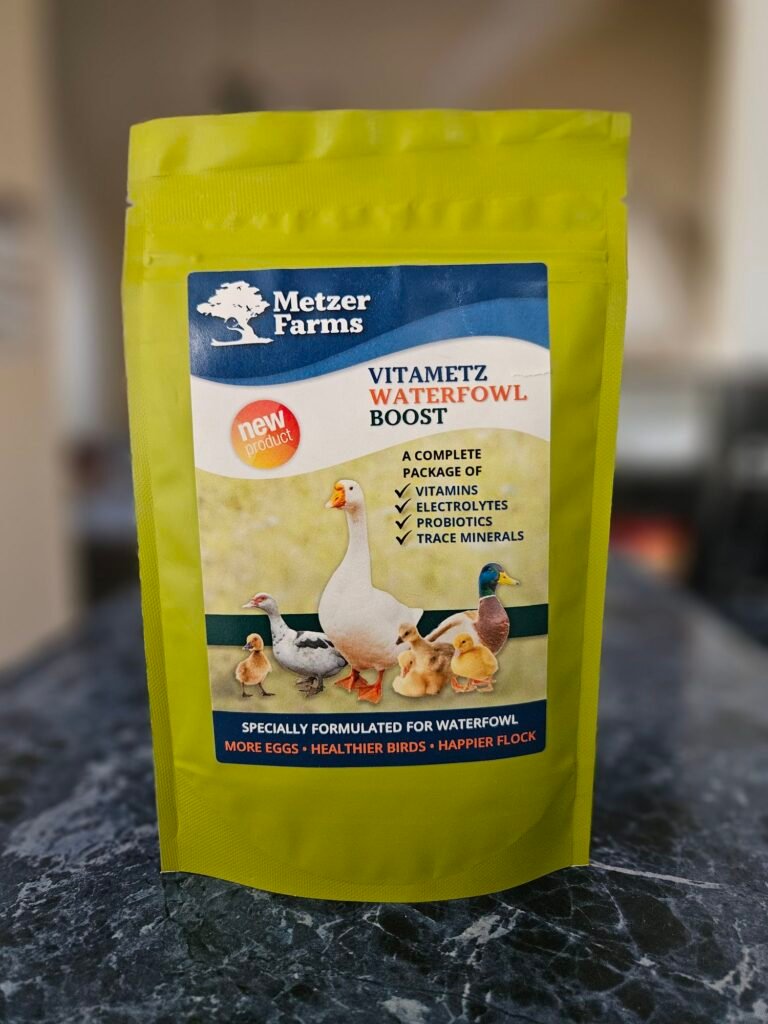
Potassium (K):
Potassium (K) is an essential mineral that plays several critical roles in the health and physiology of ducks:
- Fluid Balance and Osmotic Regulation: Potassium is a major intracellular cation that helps maintain fluid balance and osmotic pressure within cells. It works with sodium and chloride ions to regulate water movement across cell membranes, ensuring proper hydration and cellular function in ducks. Potassium helps maintain osmotic equilibrium between intracellular and extracellular compartments, which is essential for normal cell function, metabolism, and cellular integrity.
- Nerve Function and Muscle Contraction: Potassium plays a vital role in nerve function and muscle contraction in ducks. It is involved in generating and propagating action potentials along nerve fibers, allowing for the transmission of electrical signals between neurons and muscle cells. Potassium channels help regulate nerve cells and muscle fibers’ resting membrane potential, controlling their excitability and responsiveness to stimuli. Proper potassium levels are essential for normal nerve transmission, muscle contraction, and coordination in ducks.
- Heart Function and Cardiovascular Health: Potassium is crucial for maintaining normal heart function and cardiovascular health in ducks. It plays a role in regulating cardiac muscle contraction and rhythm by influencing the excitability of cardiac cells and the conduction of electrical impulses within the heart. Potassium helps ensure proper heart rate, rhythm, and contractility, supporting efficient blood circulation and oxygen delivery to tissues throughout the body. Adequate potassium intake is essential for preventing arrhythmias, cardiac dysfunction, and cardiovascular disease in ducks.
- Acid-Base Balance: Potassium contributes to maintaining acid-base balance and pH homeostasis in ducks. It acts as a buffer against changes in extracellular pH by influencing the exchange of hydrogen ions (H+) and bicarbonate ions (HCO3-) in the kidneys. Potassium ions are exchanged for hydrogen ions in the renal tubules, promoting the excretion of excess acid and the reabsorption of bicarbonate, helping to regulate systemic pH within a narrow range compatible with normal physiological function.
- Metabolism and Enzyme Function: Potassium is involved in various metabolic processes and enzyme functions in ducks. It serves as a cofactor for enzymes involved in carbohydrate metabolism, protein synthesis, and nucleic acid synthesis, supporting cellular energy production, growth, and repair. Potassium also plays a role in the activation of enzymes that regulate ion transport, membrane permeability, and cell signaling, influencing various physiological processes and metabolic pathways in ducks.
In summary, potassium is an essential mineral for ducks. It supports fluid balance, nerve function, muscle contraction, heart health, acid-base balance, metabolism, and enzyme function. Ensuring adequate potassium intake through the diet is crucial for promoting the health, performance, and overall well-being of ducks throughout their lifecycle.
Magnesium (Mg):
Magnesium (Mg) is an essential mineral that plays several important roles in the health and physiology of ducks:
- Muscle Function: Magnesium is involved in muscle contraction and relaxation in ducks. It acts as a cofactor for enzymes that regulate the movement of calcium ions (Ca^2+) into and out of muscle cells, which is essential for initiating and controlling muscle contractions. Magnesium helps maintain proper muscle function, coordination, and responsiveness to nerve signals, supporting normal movement and activity in ducks.
- Nervous System Function: Magnesium is necessary for proper nerve transmission and signaling in ducks. It helps regulate the release and uptake of neurotransmitters, such as acetylcholine and glutamate, which are involved in transmitting electrical impulses between nerve cells. Adequate magnesium levels support optimal nerve function, coordination, and communication, contributing to normal sensory perception, motor control, and behavior in ducks.
- Bone Health: Magnesium is a component of bone mineralization and skeletal structure in ducks. It helps regulate the activity of osteoblasts and osteoclasts, the cells responsible for bone formation and remodeling, ensuring proper bone growth, density, and strength. Magnesium interacts with calcium and phosphorus to form hydroxyapatite crystals, the primary mineral component of bones, helping to maintain skeletal integrity and resistance to fractures in ducks.
- Energy Metabolism: Magnesium is involved in energy metabolism and ATP synthesis in ducks. It serves as a cofactor for enzymes involved in glycolysis, the tricarboxylic acid (TCA) cycle, and oxidative phosphorylation, which are essential processes for producing and utilizing cellular energy. Magnesium helps facilitate the conversion of glucose and fatty acids into ATP, providing the energy needed to support physiological functions, growth, and maintenance in ducks.
- Enzyme Activation: Magnesium acts as a cofactor for hundreds of enzymes involved in various metabolic pathways and cellular processes in ducks. It helps activate enzymes that catalyze reactions, such as DNA and RNA synthesis, protein synthesis, and carbohydrate metabolism. Magnesium also participates in enzyme systems that regulate ion transport, hormone production, and antioxidant defense, influencing overall metabolic function and physiological homeostasis in ducks.
In summary, magnesium is an essential mineral for ducks. It supports muscle function, nervous system function, bone health, energy metabolism, and enzyme activation. Ensuring adequate magnesium intake through the diet is crucial for promoting the health, performance, and overall well-being of ducks throughout their lifecycle.
Iron (Fe), Zinc (Zn), Copper (Cu), and Manganese (Mn):
Iron (Fe), zinc (Zn), copper (Cu), and manganese (Mn) are essential trace minerals that play vital roles in the health and physiology of ducks:
- Iron (Fe):
- Iron is a component of hemoglobin and myoglobin, which are proteins involved in oxygen transport and storage in the blood and muscles, respectively. Iron is essential for delivering oxygen to tissues and cells throughout the body, supporting cellular respiration, energy production, and metabolic function in ducks. Iron also plays a role in enzyme systems involved in DNA synthesis, immune function, and antioxidant defense, contributing to overall health and vitality in ducks.
- Zinc (Zn):
- Zinc is a cofactor for numerous enzymes involved in cellular processes such as DNA replication, RNA transcription, and protein synthesis. Zinc plays a crucial role in cell growth, differentiation, and repair, supporting tissue development, wound healing, and immune function in ducks. Zinc is also involved in the synthesis and secretion of hormones, such as insulin and growth hormone, regulating metabolism, growth, and reproduction in ducks.
- Copper (Cu):
- Copper is a cofactor for enzymes involved in energy metabolism, antioxidant defense, and connective tissue synthesis in ducks. Copper-dependent enzymes, such as cytochrome c oxidase and superoxide dismutase, play roles in electron transport, cellular respiration, and free radical scavenging, protecting cells from oxidative damage and supporting overall health and longevity in ducks. Copper is also required for the synthesis of collagen and elastin, essential components of skin, bones, and blood vessels.
- Manganese (Mn):
- Manganese is a cofactor for enzymes involved in carbohydrate metabolism, bone formation, and antioxidant defense in ducks. Manganese-dependent enzymes, such as pyruvate carboxylase and manganese superoxide dismutase, participate in glucose metabolism, collagen synthesis, and free radical scavenging, supporting energy production, tissue repair, and immune function in ducks. Manganese also plays a role in the formation of cartilage and bone, helping to maintain skeletal health and integrity.
In summary, iron, zinc, copper, and manganese are essential trace minerals that play critical roles in various physiological processes, including oxygen transport, enzyme function, immune function, antioxidant defense, and tissue growth and repair, in ducks. Ensuring adequate intake of these minerals through the diet is essential for promoting the health, growth, and performance of ducks throughout their lifecycle.
Below is a table outlining appropriate mineral levels for ducks across different categories:
| Mineral | Ducklings (0-2 weeks) | Ducklings (3-6 weeks) | Growers (7-20 weeks) | Layers (20+ weeks) | Breeders | Maintenance |
|---|---|---|---|---|---|---|
| Calcium (Ca) | 0.80 – 1.00% | 0.75 – 0.90% | 0.60 – 0.80% | 3.50 – 4.00% | 4.00 – 4.50% | 2.50 – 3.00% |
| Phosphorus (P) | 0.40 – 0.50% | 0.35 – 0.45% | 0.30 – 0.40% | 0.40 – 0.50% | 0.40 – 0.50% | 0.40 – 0.50% |
| Sodium (Na) | 0.15 – 0.25% | 0.20 – 0.30% | 0.20 – 0.30% | 0.20 – 0.30% | 0.20 – 0.30% | 0.20 – 0.30% |
| Chloride (Cl) | 0.20 – 0.30% | 0.25 – 0.35% | 0.25 – 0.35% | 0.25 – 0.35% | 0.25 – 0.35% | 0.25 – 0.35% |
| Potassium (K) | 0.20 – 0.30% | 0.20 – 0.30% | 0.20 – 0.30% | 0.20 – 0.30% | 0.20 – 0.30% | 0.20 – 0.30% |
| Magnesium (Mg) | 0.10 – 0.20% | 0.10 – 0.20% | 0.10 – 0.20% | 0.10 – 0.20% | 0.10 – 0.20% | 0.10 – 0.20% |
| Iron (Fe) | 100 – 200 ppm | 100 – 200 ppm | 100 – 200 ppm | 100 – 200 ppm | 100 – 200 ppm | 100 – 200 ppm |
| Zinc (Zn) | 30 – 60 ppm | 30 – 60 ppm | 30 – 60 ppm | 30 – 60 ppm | 30 – 60 ppm | 30 – 60 ppm |
| Copper (Cu) | 5 – 10 ppm | 5 – 10 ppm | 5 – 10 ppm | 5 – 10 ppm | 5 – 10 ppm | 5 – 10 ppm |
| Manganese (Mn) | 50 – 100 ppm | 50 – 100 ppm | 50 – 100 ppm | 50 – 100 ppm | 50 – 100 ppm | 50 – 100 ppm |
Proper mineral nutrition is essential for promoting duck health, growth, and productivity. Diets should be formulated to meet ducks’ specific mineral requirements at each growth and production stage, considering factors such as age, breed, reproductive status, and environmental conditions. Regular monitoring of mineral levels and supplementation as needed can help prevent deficiencies or imbalances and support overall duck health and well-being.

Black Soldier Fly Larvae
Grubs, aka BSL (black soldier fly larvae), are rich in proteins and fats and boast significantly higher calcium content than mealworms. They serve as a natural powerhouse for ducks. They promote optimal health and vibrant plumage, making them an essential treat for our feathered friends to thrive happily! We’re excited to offer you an exclusive discount on Grub Terra Products. Simply use code Providence10 to save 10% on your first order with Grub Terra (the discount works for their other products as well).
Water-Soluble Vitamins: Essential Nutrients for Duck Health
Water-soluble vitamins play a crucial role in maintaining the health and vitality of our feathered friends. Let’s explore the importance of these vitamins and how we can ensure our ducks receive an adequate supply:
Vitamin B Complex: Fueling Energy Metabolism
- The vitamin B complex, including thiamine (B1), riboflavin (B2), niacin (B3), pantothenic acid (B5), pyridoxine (B6), biotin (B7), folate (B9), and cobalamin (B12), is essential for energy metabolism.
- These vitamins help convert the nutrients from their diet into energy, supporting various bodily functions, including growth, movement, and overall vitality.
- Ducks require a consistent supply of B vitamins to maintain optimal energy levels and support their active lifestyles.
Understanding the Role of Niacin in Your Duck’s Diet
Niacin, also known as vitamin B3, plays a vital role in maintaining your duck’s overall health and well-being. While often overlooked, niacin is essential for various physiological functions, particularly in young ducklings.
- Preventing Nutritional Deficiencies: Ducklings are particularly susceptible to niacin deficiencies, which can manifest as leg deformities, commonly known as spraddle leg or splay leg. These conditions occur due to a lack of niacin during the early stages of development when rapid growth occurs.
- Supporting Growth and Development: Niacin is crucial for your ducklings’ proper growth and development. It aids in the metabolism of proteins, fats, and carbohydrates, ensuring that your ducklings receive the energy and nutrients necessary for healthy growth.
- Maintaining Healthy Nervous System Function: Niacin is essential for the proper functioning of the nervous system. It helps in the synthesis of neurotransmitters, which are chemical messengers that facilitate communication between nerve cells. Adequate niacin levels are necessary for maintaining optimal neurological function in ducks.
- Niacin’s Neuroprotective Role: Niacin is essential for the synthesis of NAD (nicotinamide adenine dinucleotide), a coenzyme involved in various metabolic processes, including those critical for neurological function. Adequate niacin levels help support the nervous system, reducing the risk of neurological abnormalities in ducks.
- Neurological Symptoms: Ducks suffering from niacin deficiency may display neurological abnormalities, including tremors, seizures, or incoordination. These symptoms can vary in severity and may worsen over time if the deficiency is not addressed.
- Sources of Niacin: Ducks can obtain niacin from various dietary sources. Commercial duck feeds often contain supplemental niacin to meet the nutritional needs of growing ducklings. Additionally, niacin is naturally present in foods such as fish meal, yeast, green leafy vegetables, and legumes.
- Supplementation: In cases where ducklings are at risk of niacin deficiency, supplementation may be necessary. Niacin supplements, or Brewers Yeast, can be added to their diet to ensure they receive an adequate amount of this essential nutrient.
- Balancing the Diet: While ensuring sufficient niacin intake is important, it’s also essential to maintain a balanced diet for your ducks. Providing a variety of foods that offer a range of nutrients, including niacin, is key to promoting overall health and preventing nutritional deficiencies.
It is recommended that ducklings get >70mg of Niacin per kg feed (or 10 mg of Niacin per day). Adult ducks should get 12.5 mg per day and at least 50 mg of Niacin per kg feed.
If you’re unsure about the niacin content in their feed, consider supplementing their diet with additional niacin. You can do this by adding brewer’s yeast to their feed or niacin supplements to their water, as recommended by Metzer.

We have supplemented our duckling’s drinking water with this Niacin just to be on the safe side. Using a small measuring spoon, we added 150 mg of niacin to a gallon of water.
Vitamin C: Boosting Immune Support
- Vitamin C, also known as ascorbic acid, is a powerful antioxidant that supports immune function and helps protect against oxidative stress.
- While ducks can synthesize vitamin C internally, offering supplemental sources can further bolster their immune system and enhance overall health.
- Adequate vitamin C intake can help ducks better resist diseases and infections, promoting longevity and well-being.
Meeting Water-Soluble Vitamin Requirements:
- Fresh Greens: Offer a variety of fresh greens, such as kale, spinach, and lettuce. These are rich sources of water-soluble vitamins, particularly vitamin C and various B vitamins.
- Quality Feeds: Choose high-quality duck feeds that are specifically formulated to provide essential nutrients, including water-soluble vitamins. Look for feeds enriched with vitamins or fortified with natural ingredients.
- Balanced Diet: Ensure a well-balanced diet that includes a mix of greens, grains, seeds, and commercial feeds to meet all of their nutritional needs.
Water-soluble vitamins, including the vitamin B complex and vitamin C, are vital for supporting energy metabolism, immune function, and overall health in ducks. By offering a diverse range of fresh greens and high-quality feeds, we can ensure our feathered companions receive the essential nutrients they need to thrive. Let’s continue to prioritize their nutritional well-being and provide them with the care and attention they deserve!
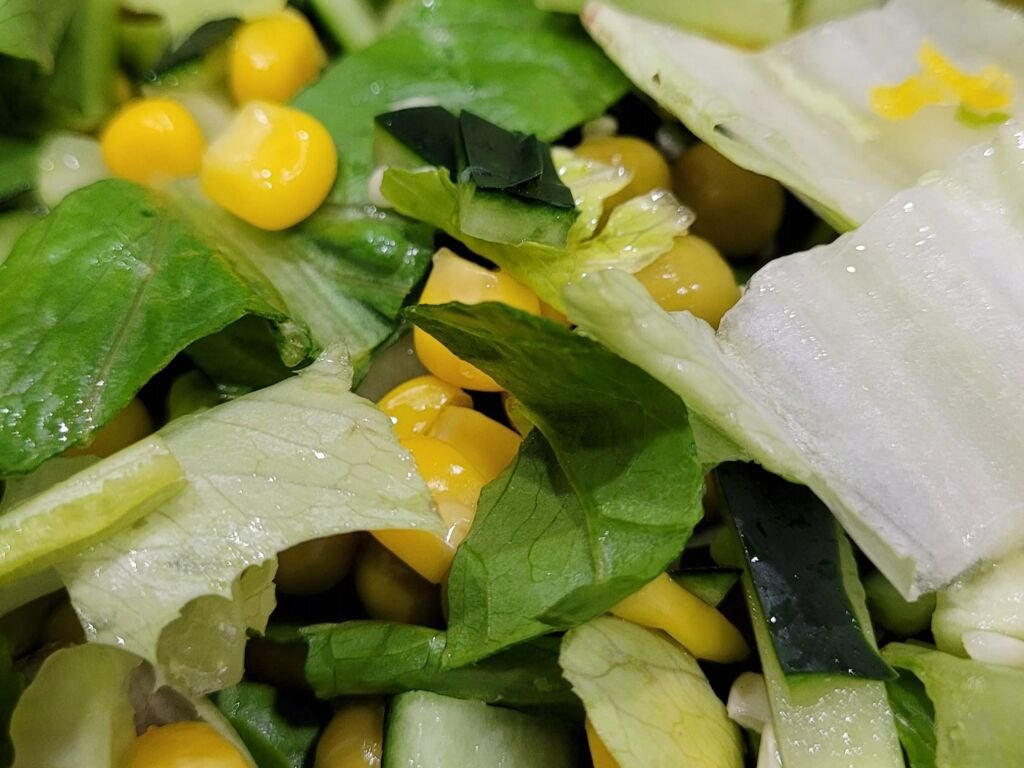
Oil-Soluble Vitamins: Nourishing Duck Health from Within
Oil-soluble vitamins are vital nutrients that contribute to the overall well-being and vitality of our beloved ducks. Let’s explore the importance of these vitamins and how we can ensure our ducks receive adequate levels to meet the unique nutritional needs of ducks:
Vitamin A: Essential for Vision
- Vitamin A is crucial for maintaining healthy vision in ducks, promoting optimal eye function and visual acuity.
- It also supports the health of their skin, feathers, and mucous membranes, contributing to their overall appearance and well-being.
Vitamin D: Facilitating Calcium Absorption
- Vitamin D is essential for calcium absorption and utilization, ensuring strong bones, optimal skeletal development, and egg-shell formation in ducks.
- Exposure to natural sunlight allows ducks to synthesize vitamin D in their skin, but supplemental sources may be necessary, especially in confined or indoor environments.
Vitamin E: Providing Antioxidant Protection
- Vitamin E is a powerful antioxidant that helps protect cells from damage caused by free radicals, supporting overall immune function and health.
- It also plays a role in muscle development, reproduction, and neurological function, contributing to the overall vitality of ducks.
Vitamin K: Supporting Blood Clotting
- Vitamin K is essential for blood clotting and wound healing, ensuring that ducks can effectively respond to injuries and maintain hemostasis.
- It also contributes to bone health by supporting the synthesis of certain proteins involved in bone mineralization.
Meeting Oil-Soluble Vitamin Requirements:
- Choose Feeds with Added Vitamins: Select high-quality duck feeds that are enriched with oil-soluble vitamins or specifically formulated to provide essential nutrients.
- Provide Supplements as Necessary: Consider offering supplemental sources of oil-soluble vitamins, especially if ducks are not receiving adequate levels through their diet or environmental exposure.
- Regular Monitoring: Monitor your ducks’ health and well-being closely and consult with a veterinarian if you suspect deficiencies or imbalances in their vitamin intake.
Oil-soluble vitamins, including vitamins A, D, E, and K, are essential for supporting vision, calcium absorption, antioxidant protection, and blood clotting in ducks. By choosing feeds with added vitamins or providing supplements as necessary, we can ensure our feathered companions receive the vital nutrients they need to thrive. Let’s continue to prioritize their nutritional well-being and provide them with the care and attention they deserve!
Water: The Lifesource for Happy and Healthy Ducks
Water is not just a necessity; it’s the lifeline that sustains the health and vitality of our beloved ducks. Let’s take a closer look at the profound importance of water in the lives of our feathered companions:
Hydration and Vital Functions:
- Water is essential for maintaining proper hydration in ducks and for supporting vital bodily functions such as digestion, circulation, and temperature regulation.
- Ducks rely on water to stay hydrated, especially during hot weather or periods of increased activity. Dehydration can lead to serious health issues and must be avoided at all costs.
Digestive Health and Nutrient Absorption:
- Adequate water intake is crucial for proper digestion in ducks. Water helps soften food in the digestive tract, making it easier to break down and absorb essential nutrients.
- Without enough water, ducks may experience digestive issues such as constipation or impaction, hindering their ability to extract nutrients from their diet effectively.
Behavioral and Environmental Needs:
- Ducks have natural instincts to engage in behaviors such as bathing, swimming, and foraging in water. Providing access to clean water allows them to express these natural behaviors and maintain their overall well-being.
- Water also serves as a habitat for aquatic plants and insects, enriching the environment for ducks and supporting biodiversity in their surroundings.
Health and Disease Prevention:
- Clean water helps prevent the spread of diseases and infections among duck flocks. Regular access to fresh water allows ducks to clean themselves and removes potential contaminants from their feathers and skin.
- Water sources should be kept clean and free from debris to minimize the risk of waterborne illnesses and maintain optimal health in ducks.
Water is the cornerstone of duck health and happiness, fulfilling their hydration needs, supporting digestion and nutrient absorption, facilitating natural behaviors, and safeguarding against diseases. By providing clean and accessible water at all times, we can ensure our feathered companions lead fulfilling lives filled with quacks, splashes, and waddles. Let’s continue to prioritize their access to water and uphold their well-being with the care and attention they deserve!
Feathered Friend Tip: Regardless of their purpose, all ducks require access to clean, fresh water to stay hydrated and aid in nutrient absorption.
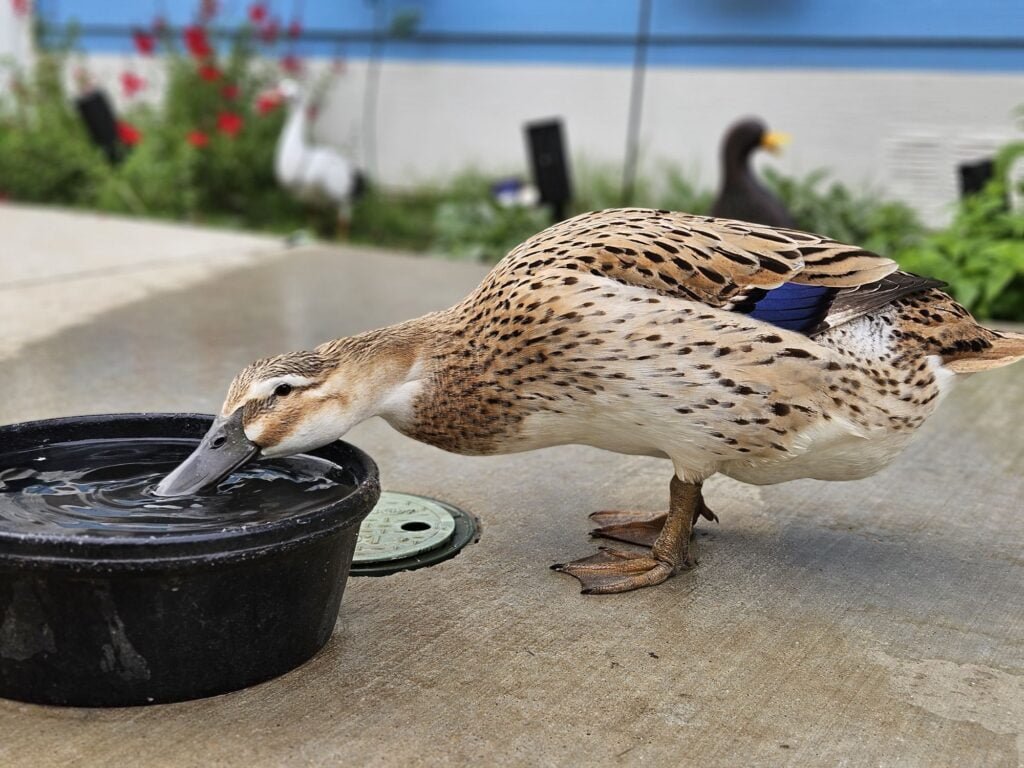
Conclusion: Advancing Our Understanding of Duck Nutrition
In our exploration of the nutritional needs of ducks, we’ve gained valuable insights into the dietary requirements essential for the health and well-being of our feathered companions. From the foundational elements such as protein, carbohydrates, fats, vitamins, and minerals to the critical role of water in maintaining hydration, our journey has provided a comprehensive understanding of the nutritional needs of ducks.
As responsible stewards of duck health, it’s imperative that we prioritize providing a well-balanced diet tailored to meet their specific nutritional requirements. By offering a diverse array of foods, including high-quality feeds, fresh greens, seeds, grains, and supplementary sources of essential nutrients, we can ensure optimal health outcomes for our ducks.
Whether it’s supporting their energy metabolism through protein intake, facilitating digestive health with fiber-rich foods, bolstering immune function with vitamin supplementation, or ensuring proper hydration with access to clean water sources, every aspect of duck nutrition plays a vital role in promoting their overall health and longevity.
As we deepen our understanding of the nutritional needs of ducks, let us remain committed to implementing evidence-based dietary practices that optimize the health and welfare of our feathered companions. Through continued education and attentive care, we can cultivate a community of well-nourished ducks, fostering their resilience and vitality for years to come. 🦆💚
If you want to learn how to learn what to feed your duck for a balanced diet that meets the nutritional needs of ducks, continue reading our post What Do Ducks Eat? Your Guide To Feeding Ducks. If you want to learn more about healthy treats, continue with our post, The Ultimate Guide to Healthy Duck Snacks: Treats Your Ducks Will Love.
References:
- https://www.poultryhub.org/all-about-poultry/nutrition/nutrient-requirements-of-ducks
- https://www.vet.cornell.edu/animal-health-diagnostic-center/programs/duck-research-lab/duck-nutrition
- https://www.ncbi.nlm.nih.gov/pmc/articles/PMC5769293/
- https://www.merckvetmanual.com/multimedia/table/nutrient-requirements-of-pekin-ducks
- https://www.metzerfarms.com/nutritional-requirements.html
- https://www.ncbi.nlm.nih.gov/pmc/articles/PMC7705048/
- https://www.veterinaryworld.org/Vol.14/August-2021/34.html


